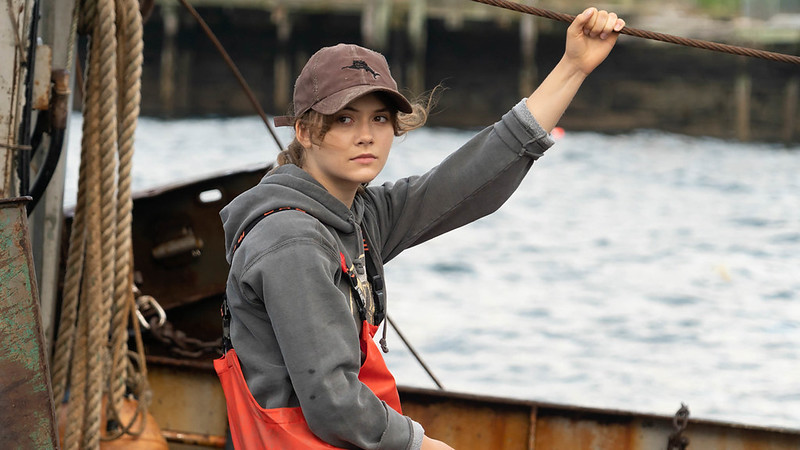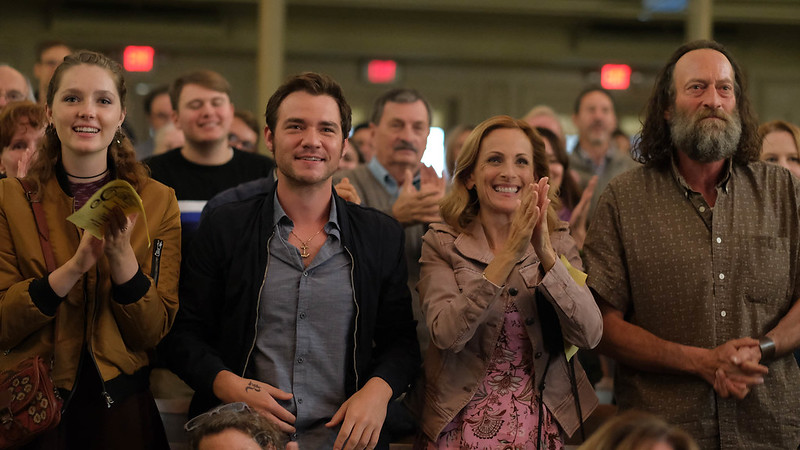
It’s never the biggest movies that premiere on opening night of the Sundance Film Festival, but they’re always worth looking at carefully since they do set the tone for what comes next. I reviewed the first films I saw in 2020 and 2019 for this site, and they were both among the best films I saw each year – Summertime, director Carlos López Estrada’s follow-up to another Sundance opening night premiere, Blindspotting, coming out sometime this summer, and the Alex Gibney documentary The Inventor: Out for Blood in Silicon Valley, which ended up debuting on HBO.
That impressive club adds a new member this year in the form of CODA. I didn’t realize until I finished watching the film that its title is an acronym for Child of Deaf Adults...
(Humorously, one of the funniest films I’ve ever seen at Sundance was A.C.O.D., a completely different movie that stood for Adult Children of Divorce.) CODA is serious but contains a great deal of levity and laughs, which director Siân Heder lamented in her introduction to the film wouldn’t be measurable; in a virtual festival you can't hear the laughter.
Emilia Jones stars as Ruby, a high school student in Gloucester, Massachusetts who spends all of her free time helping her father Frank (Troy Kotsur) and brother Leo (Daniel Durant) on their fishing boat. Her mother Jackie (Marlee Matlin) isn’t as involved with the family business but does feel a sense of isolation from the hearing community as a result of numerous negative interactions. Propelled by interest in a boy (Ferdia Walsh-Peelo), Ruby signs up for choir at school, revealing a hidden talent for singing that is quickly noticed by her discerning teacher (Eugenio Derbez), who suggests she might have a future as a student at Boston’s Berklee College of Music.
There are many conversations these days about actors playing roles that actually speak to who they are, and, fortunately, the least authentic thing about this film is the idea that Jones is from New England (she hails from the other England). Oscar winner Matlin is a known quantity, but Kotsur and Durant are also working deaf actors. The sign language they use to enthusiastically communicate with each other is captioned for audiences unfamiliar, though the moments in which others aren’t meant to understand them are left uninterpreted to highlight the sense of confusion that Frank, Jackie, and Leo often feel when others assume that their words will be heard.

This film held a deep resonance for me because of stories from my own family history. My grandmother would talk about growing up with her brother during the Great Depression and acting out sports games they heard over the radio for their deaf parents. They were a conduit to an experience that their parents couldn’t have in the same way as others.
Ruby speaks on behalf of her family members, but she also relays what she is hearing to them with her own dramatic flair. The funnier side of that here involves her father blasting rap music because he enjoys the vibrations and having very loud sex with her mother because they can’t hear the volume of the sounds they’re making, much to their daughter’s horror.
This is a marvelous and heartwarming drama. It doesn’t blaze new territory when it comes to its narrative but features genuine characters who are rarely the main protagonists. Coming just a few months after likely Oscar contender Sound of Metal was released to great acclaim, this film offers a softer approach to a subject that baffles many because they’ve never stopped to consider what life is like for those who can’t hear and what is expected without any attempt at reasonable accommodations. The music choices and blending of sound are extraordinary, and these performances, particularly from Kotsur and the very talented Jones (best known to this point for Netflix’s Locke and Key) are equally superb.
This film’s second screening window is already sold out at Sundance, but make time to see this film when you can – it’s a lovely, moving, and truly wonderful experience.